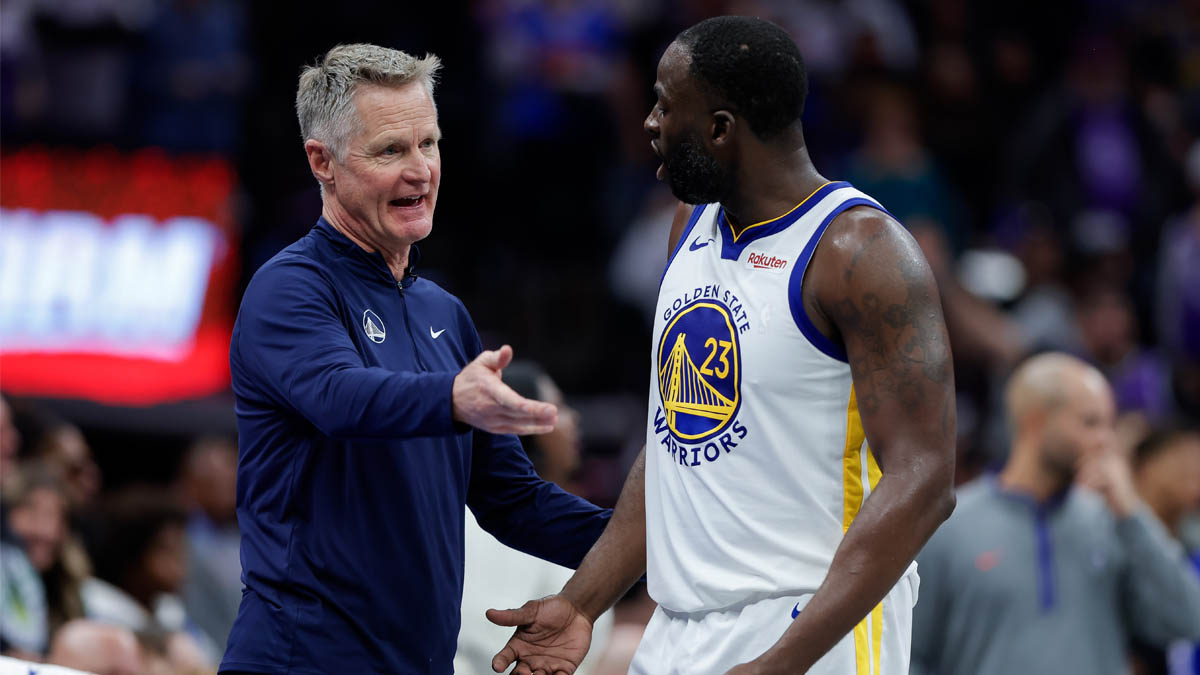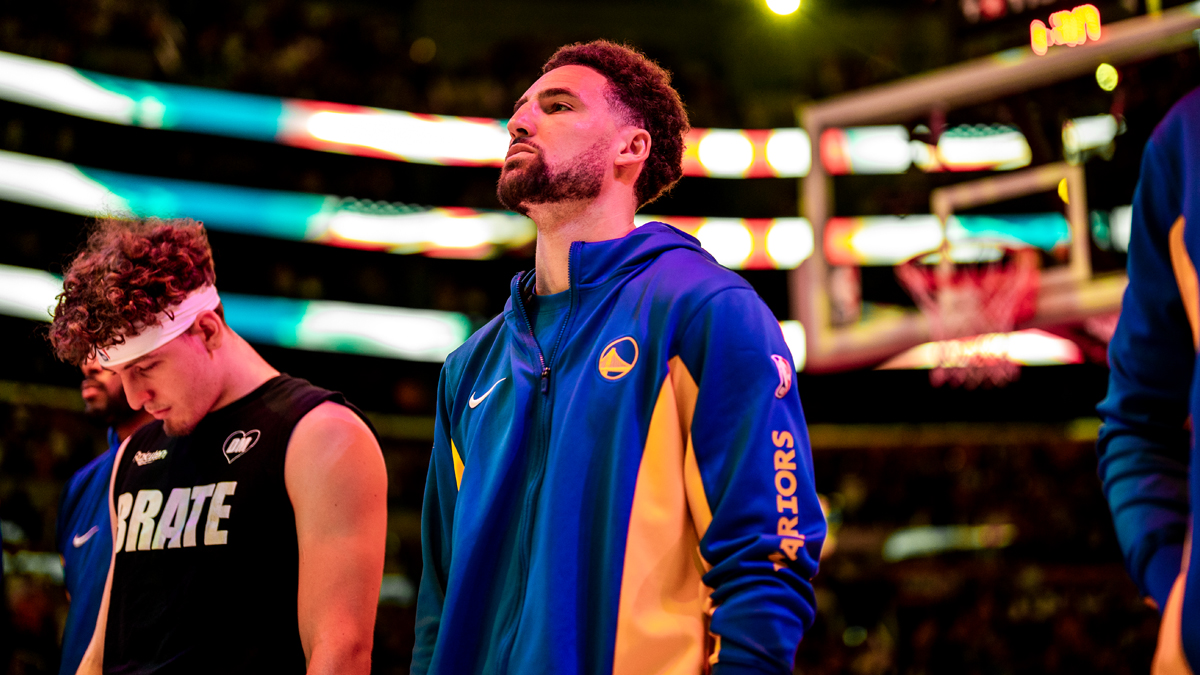
While the Warriors and Cavaliers were spending four years turning the NBA Finals into an annual reunion, complaints that began with a whisper cranked up to a shout.
The NBA is boring. There’s no suspense. The Warriors are so good; they’re ruining the NBA. Why bother playing the season?
And, finally, came the so-called solution: What the NBA needs is parity.
Stay in the game with the latest updates on your beloved Bay Area and California sports teams! Sign up here for our All Access Daily newsletter.
Which is a lie in every conceivable way. Parity was never the goal for former commissioner David Stern, and current commissioner Adam Silver wouldn’t have his name sullied by association with such a dirty word. Parity is bad for business.
Superstars on great teams, by contrast, keep eyeballs engaged and cash flowing. The most watched Finals game ever was Bulls-Jazz Game 6 in 1998, with Michael Jordan chasing his third consecutive title for the second time. No. 2 was Game 6 in 1993, when Jordan was chasing his third in a row for the first time.
No matter what he says or how he says it, Silver loves what the Warriors are doing. They’re filling seats from coast the coast. They’re TV gold on all seven continents. They’re No. 1, by a considerable margin, in licensed merchandise sales.
The Warriors are, by example, forcing other franchises to raise their games, to either compete or be exposed as incompetent or frauds chasing a dollar.
Golden State Warriors
“People forget Golden State was built organically before they signed Kevin Durant,” says Jim Jackson, who played 14 seasons before retiring in 2006. “It was an organic concept that started with getting Steph Curry. And then they got Klay (Thompson). And then they get Dray (Green) in the second round. You get a Harrison Barnes. You bring in an Andre Iguodala and a Shaun Livingston. They were all there early on.
“And then, on the back end, after they’ve had some success, they added a Kevin Durant and a DeMarcus Cousins.”
The arrival of Durant two summers ago heralded the era of the Warriors as a super team or, as some seem to prefer, “Super Villains.” The Warriors personified something indomitable, and they’ve gained back-to-back championships by winning eight of nine games in The Finals.
They’re bossing the league, just as the Chicago Bulls did in Jordan’s heyday -- which was at the center of the league’s stunning rise in global popularity.
Warriors-Cavaliers represented the best rivalry since the Showtime Lakers and the Larry Legend Celtics met three times in a four-year stretch during the 1980s.
The current Warriors long to be thought of in the same exalted realm as those Bulls and Lakers and Celtics, who all have something in common: Historical greatness. The NBA wouldn’t be where it is without those three franchises.
“I like that the Warriors are pursuing championships,” says Michael Cooper, who won five rings with the Lakers, including two over Boston. “I like it when players pursue championships because when all is said and done, they’ll be mostly judged by that.
“As far a parity goes, that’s on the other teams. It’s up to them to fix their own franchises.”
The Lakers and Celtics, behind Magic Johnson and Larry Bird, are credited with bringing the NBA out of the dark ages and, in some quarters, saving the league. Jordan and the Bulls took it to another level.
Fame and stardom bat parity every time.
Parity is how the 44-win Washington Bullets staggered to a title in 1978, how the 47-win Houston Rockets hoisted the trophy in 1995 and how the San Antonio Spurs, in 1999, trudged to a five-game Finals victory over the eighth-seeded Knicks without either team scoring 100 points in any game.
Think there was dancing in the league’s New York offices a year later, when Shaquille O’Neal and Phil Jackson joined Kobe Bryant as Lakers? Parity was out, and the NBA was back in familiar territory.
Eight franchises are responsible for all but 12 championships over the league’s 72-year history. The Celtics have 17 and the Lakers 16. The Warriors and Bulls, with six titles each, and the Spurs with five, are the only teams with more than three titles.
The Kings haven’t won a title in 67 years, back when they were the Rochester Royals. The Suns, 51 seasons in, are awaiting their first championship. So are the Pacers, whose titles came in the pre-merger ABA. The Clippers? Please.
“If you’ve been around and were paying attention, you’d know the NBA never really had parity,” Jackson says.
“We do want to see parity,” says Jermaine O’Neal, whose 18-year career ended in 2014. “But I don’t think the Warriors are ruining the NBA. This started years ago. Multiple stars have gotten together and have played together but just didn’t win.”
LeBron James and Chris Bosh joined Dwyane Wade in Miami in 2010 and made four consecutive trips to The Finals, winning twice. Orlando traded for Grant Hill and Tracy McGrady in 2000 -- and came within an antiquated company policy of probably adding free agent Tim Duncan -- but was derailed by injuries and never got past the first round of the playoffs.
Who says the games are pointless, the season an exercise in futility for all but the Warriors?
“You cannot say that,” admonishes Hall of Famer Clyde Drexler. “It’s a long season; you don’t know who is going to win. But certainly, the Warriors look really good. They’re the defending champions. I wouldn’t bet against them.
“But my Rockets may have something to say about that. They’re very talented. If Chris Paul stays healthy, the Rockets are the champions this season.”
Ahem.


